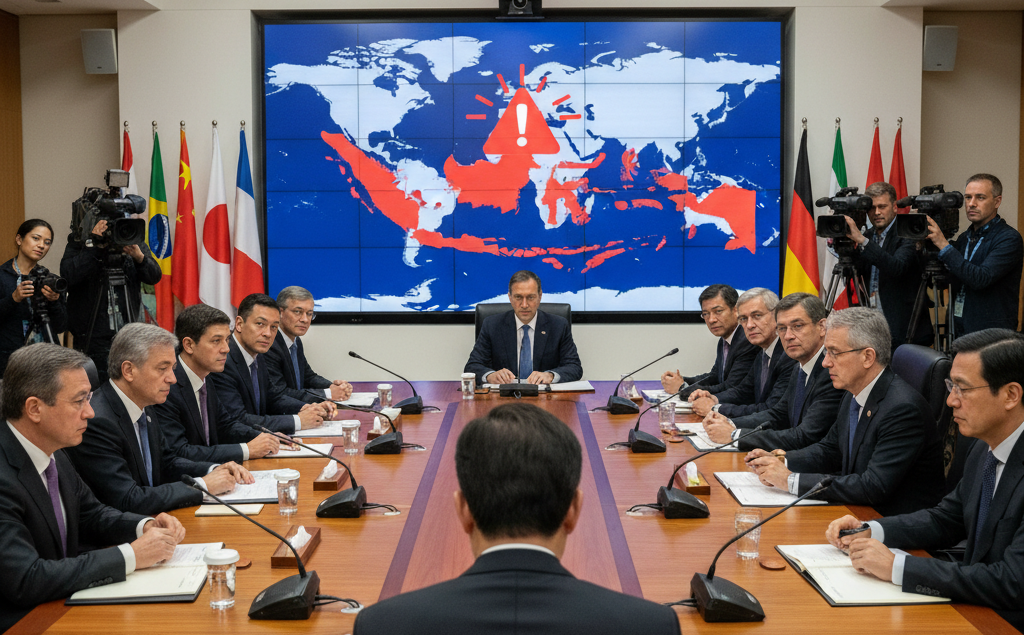
IOC Advises Sports Federations to Avoid Indonesia Following Israeli Athletes Ban. The International Olympic Committee’s (IOC) latest recommendation urges sports federations to distance themselves from Indonesia following the country’s decision to ban Israeli athletes from world championships. This move reflects the IOC’s efforts to separate international sport from national political action. This article examines the background, implications, and potential steps sports federations could take in response to this policy.
Background to the Recommendation: The IOC Advises Sports Federations to Avoid Indonesia
From the outset, the keyword “IOC Advises Sports Federations to Avoid Indonesia” has been a key topic of interest in the sports world. This decision came after Indonesia refused to allow Israeli athletes to participate in the championships.
Olympics.com
The IOC stated that all athletes, teams, and officials should be able to participate in international competitions without discrimination based on the host country, according to the report.
Olympics.com
The IOC took serious action after Israeli athletes who were scheduled to participate in the previous world championships in Jakarta were denied visas.
Main Reason: Why Does the IOC Advise Sports Federations to Avoid Indonesia?
- Violating the principle of non-discrimination
IOC secara resmi menyatakan bahwa tindakan Indonesia melanggar prinsip-prinsip dasar Gerakan Olimpiade, yaitu non-diskriminasi dan netralitas politik.
2. Threat to the reputation of sports federations
With the IOC’s recommendation to avoid Indonesia, global federations may reconsider the location to avoid damaging political issues.
3. Impact on athletes’ rights
The IOC is concerned about fair access to competition due to the ban on Israeli athletes.
4. Stop talking about an Olympic bid
The IOC has decided not to talk to Indonesia about its Olympic bid until all athletes have fair access.
Implications for International Sports Federations
The “IOC Advises Sports Federations to Avoid Indonesia” recommendation has significant strategic implications:
- Federations should review the host country’s entry conditions, including visa policies and friendly relations.
- Federations should request written assurances that all athletes will be allowed entry without discrimination if they choose Indonesia as a host.
- In controversial situations like the current Indonesia-Israel dispute, a federation’s reputation could be at risk.
- If the risks are too great, the federation should consider alternative locations or postpone the event.
Impact on Indonesia
Indonesia, which has often sought to host international sporting tournaments, is now facing the real consequences of those plans:
- Discussions with the IOC regarding the next Olympic host have been temporarily suspended.
- As federations follow the IOC’s recommendation to postpone or avoid Indonesia as a venue for international events, it is expected to be difficult to host international events.
- In this context, there is precedent that violations of athlete access can significantly impact the reputation and capabilities of a host country.
Recommendations for Federations and Stakeholders
- Verify the country’s visa and entry policies — Before selecting a venue, find out about the entry policies for all athletes, regardless of their nationality.
- Include a rights-of-access clause in your contract to ensure there will be no restrictions based on nationality or political instability.
- If there is a high risk of discrimination or political instability, consider another venue.
- Transparency Policy: Federations must commit to non-discrimination and avoid venues that violate these policies.
- Monitor progress on IOC policies and global standards—as demonstrated by the IOC’s recommendation for federations to avoid Indonesia. Federations can be proactive by staying up-to-date
According to official guidelines published by the International Olympic Committee (IOC) regarding the principle of non-discrimination, each host country is required to ensure equal access for all athletes regardless of their nationality.
Conclusion
In this context, the IOC advises sports federations to avoid Indonesia. demonstrates how national policies regarding athletes and visas can significantly impact international sports cooperation. Federations must prioritize the right of all athletes to compete without discrimination and carefully select venues in accordance with international standards. This recommendation demonstrates to Indonesia that ensuring access for athletes is crucial to remaining a global player.
This recommendation demonstrates to all parties involved in sport that the integrity of sport worldwide depends not only on athletes and competitions, but also on a fair right to participate.